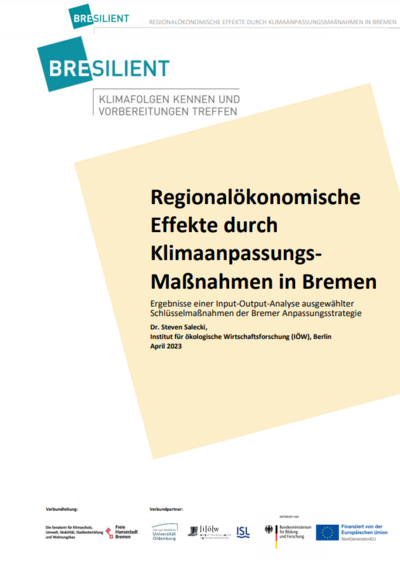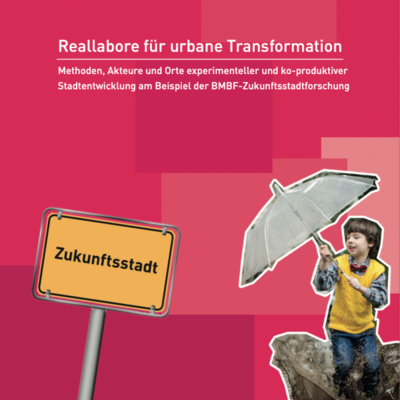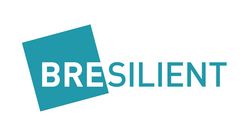Climate resilient city of Bremen Second phase implementation and continuation (BREsilient II)
Bremen is affected by the consequences of climate change in many ways. Accelerated sea level rise and an increase in heavy rainfall and hot spells are some of the specific challenges for the northern German region. Bremen's vulnerability to extreme events and "creeping" changes results in particular from its coastal location, densely populated urban areas, and critical infrastructure in a location that is economically particularly characterized by ports and logistics.
Against this background, concrete climate adaptation measures as well as cooperative approaches were developed in the research and development phase of the project "Climate Resilient City of the Future Bremen" (BREsilient I) in four model areas on different systemic levels and with different groups of actors (administration, economy, society), which can achieve a lighthouse and motivational effect for climate adaptation in the region and beyond.
Closely linked to the Bremen Strategy for Adaptation to the Consequences of Climate Change, the implementation and consolidation phase (BREsilient II) pursues the overarching goal of further strengthening climate resilience in the administration, economy and society. Topics such as urban greening, logistics and the food industry, as well as storm surge and heavy rainfall prevention, are the focus here. The cooperative relationships established in BREsilient I will be consolidated and the solutions developed for adapting to climate change will be implemented in concrete terms and transferred to other groups of actors. In particular, the three dimensions of resilience - resilience knowledge, resilience action and resilience networking - will be further increased or permanently secured.
Three different types of tools are implemented to achieve the goals:
1) Advisory tools that provide practical support for the resilience actions of the actors being advised. These include, for example, policy advice on the stronger integration of economic analyses into administrative planning processes.
2) Cooperation instruments that further improve the networking, cooperation and collaboration within and between groups of actors established in the first phase and transfer them into a permanent structure. This includes, for example, the establishment of a working group on climate adaptation in the "Partnership Environment Business".
3) Communication instruments, which are to reach in particular actors, which were not yet addressed in the real laboratories in BREsilient I.
Here, the IÖW contributes on the one hand to the development of consulting tools for practical policy advice in the application of economic analyses with a focus on the value of urban green space. The aim is to prepare the regional economic effects as well as the social benefits of urban greening for operational use in planning processes and to develop corresponding recommendations for action for the administration. On the other hand, the IÖW is involved in the development of cooperation instruments for a better networking of Bremen companies in climate adaptation. The aim here is to further increase the resilience of Bremen's economy, especially in the logistics, food and metal sectors identified as climate-vulnerable. To this end, the IÖW is conducting a business game with companies in the metal sector and is supporting a peer learning process in the food industry.
IÖW Project Team
- Dr. Esther Hoffmann
- Tobias Möllney
- Catharina Püffel
- Dr. Steven Salecki
- Patrick Schöpflin






![[Translate to Englisch:] Climate Change Risk Assessment and Adaptation Measures in the Food Supply Chain](/fileadmin/_processed_/3/d/csm_Cover_Handbook_of_Climate_Change_4ea5a20d9e.jpg)

